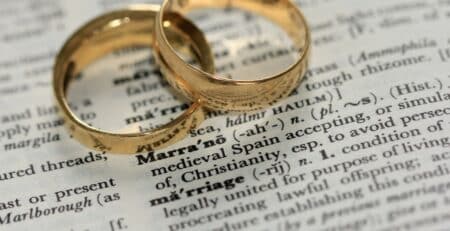Removing an Executor
We can also assist with other relevant estate administration matters, including:
- Challenging the executor of a Will
- Disputes between executors
- Intestacy disputes (Where there is no Will)
- Different
Removing an Executor
There are always likely to be a range of emotional and practical challenges to deal with when a loved one passes away. However, those issues can be exacerbated if an executor of a Will is incapable of performing their duties or are unsuitable for the position. Our contentious probate solicitors can assist you in applying to have an executor removed.
At Tinsdills Solicitors, our experienced team has a wide range of expertise, including handling various types of legal disputes. This means we have the necessary skills to guide you through every stage of proceedings, providing practical guidance to individuals who are applying to have an executor removed – as well as defending executors facing a removal.
When it comes to removing an executor, an application to the court or Probate Registry is mandatory, except in cases where an executor has renounced their position before starting their duties. We can guide you through this process, ensuring you have the close personal support you need to understand where you stand.

To reduce the potential of your loved one’s having to go through the process of removing an executor, it is essential to seek expert legal advice when dealing with lifetime planning maters such as Wills, and Trusts. In addition to dealing with matters related to contested Wills, Trusts and Probate, our team also handle various other matters. These include:
To arrange an appointment with one of our contentious probate solicitors in Hanley, Leek, Newcastle-Under-Lyme, or Sandbach please call 01782 652300 or use the enquiry form on the right hand side of the page.
Our Expertise with Removing an Executor
Executors have a range of strict responsibilities when carrying out their role. Not only this, but they also need to be well-suited to the role and be able to clearly demonstrate that they are able to follow the terms of a Will and carry out the deceased’s wishes.
Executor’s will typically need to carry out various tasks, including:
- Collecting the deceased’s assets
- Paying outstanding debts
- Detailing assets and liabilities in the estate
- Distributing the estate according to the terms of the Will
However, you may have reason to believe that an appointed executor is not fit to continue in their role. Depending on the circumstances, it may be possible to have an executor removed if:
- They are unsuitable for the position
- They are subject to a conflict of interest
- They are unfit or unable to act as an executor (for example, if they have been convicted of a crime or they lack the mental capacity to manage their affairs)
Our contentious probate solicitors can guide you through making an application to the court to have an executor removed, helping you to build a robust case that is supported by as much evidence as is required.
We can also help you in challenging an executor in situations where removing them from their role would not be possible or suitable. You can find out more about that here.
If you are an executor who is on the end of an application to remove you from your role, you will understandably be feeling confused and daunted about what the next steps will look like. Especially if you have been carrying out your duties to the best of your ability and you feel perfectly capable of continuing to do so.
Our contested probate solicitors can act in your defence if a court application is made to remove you as an executor, putting forward sufficient evidence to illustrate that you are fit to continue in your role.
After a loved one’s death, there may be others who may claim a share or interest in property belonging to the Deceased and who may not be beneficiaries either under the Deceased’s Will or their intestacy if they died without leaving a Will.
Deciding on how the ownership of a property should be dealt with following a loved one’s death can be particularly contentious. There are likely to be questions surrounding the legal technicalities of passing over the share of a property.
No matter what your circumstances might be, we can be by your side at every stage of proceedings. We can bring together all the necessary information to advise you on who the deceased’s share of the property should pass to, resolving any disputes that may arise in relation to this.
Anyone who has not inherited anything following a loved one’s death, but falls within the category of relevant claimant, may be able to bring forward a claim under the Inheritance (Provision for Family and Dependants) Act 1975.
Our team can advise you on whether making a claim via this route would be possible in your situation and take you through the process that would need to be followed in order to achieve a positive outcome.
Meet our Dedicated Contested Probate Team
Get in Touch With our Contested Probate Solicitors Today
Do you want to discuss removing an executor? We have expertise in this area and more.
With a dedicated team on hand to take you through every step of the process, you can rest assured that we will provide you with the best chance of getting the outcome you deserve.
To arrange an appointment with one of our contentious probate solicitors in
Hanley,
Leek,
Newcastle-Under-Lyme, or Sandbach,
please call 01782 652300 or use the enquiry form on the right hand side of the page.
Removing an Executor FAQs
You can usually apply to remove an executor if you are a beneficiary of the relevant Will, or you are a co-executor. It is also important to note that a third party with a direct interest in the estate (such as a creditor) may also have the scope to make an application to remove an executor.
An executor can remove themselves, but there are strict rules surrounding this process. An executor can only voluntarily give up their position before a grant of representation has been issued.
This essentially means that, if an executor commences their duties in any capacity, a Court Order will be required for their removal. This is even in situations where an executor agrees that they are not fit to carry out their role.
Where an executor is appointed through a Will which is considered to be invalid, this jeopardises their position. The most recent valid Will is used instead, which could mean that there will be changes to the people who are named as executors.
If there is no valid Will, the rules of intestacy are followed. No one will have the immediate authority to act as a personal representative of the estate and, instead, a relative of the deceased needs to apply to the Probate Registry for a grant of letters of administration. If this is accepted, that person then becomes an administrator.
Latest News
Visit the Tinsdills blog for great content about the legal sector and beyond.












